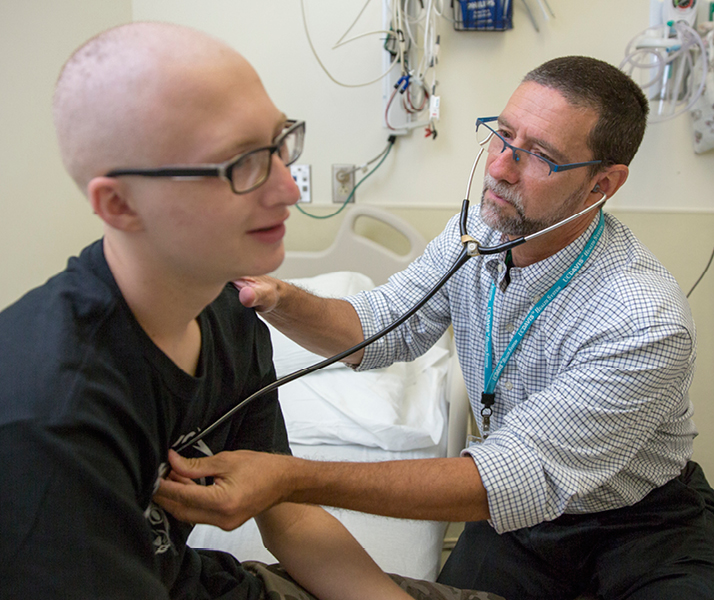
Chatting with Marcio Malogolowkin
Chief of the Division of Hematology-Oncology in the UC Davis Department of Pediatrics
Over the past couple of decades you’ve held leadership positions in pediatric hematology-oncology at UCLA and at the Children’s Hospital of Wisconsin in Milwaukee. Why UC Davis now?
A: We wanted to return to California but not back to a big, urban environment. Sacramento feels like the Midwest — the accessibility to outdoor activities, the easy-going people — without the long winters. We are very happy to be here.
The community at UC Davis was also very attractive to me. There’s a fantastic wealth of clinical, educational and research resources and opportunities. But even more important, there is a lot of work still to be done. With a new dean, we are poised for a transformation, and I want to be a part of that.
Q: What are your goals for pediatric hematology-oncology?
A: First of all, we have an excellent division, and I want to ensure that patients and families continue to receive the excellent care that they deserve, and that the medical students, residents and other trainees obtain the best education possible.
There are some programs that I want to see expanded. At the moment, we must send some of our sickest patients — those with very high-risk or recurrent cancers — to medical centers out of the area so that they can obtain novel therapies. Staying near home for treatment can make a tremendous difference for families when they are at their most vulnerable; we don’t want desperate parents to be away from their loved ones and community support in order to care for their children.
With some effort, we can consistently provide this very specialized care here. We have the necessary expertise, research capabilities and clinical resources to accomplish this.
Another special interest of mine is the group we call “AYAs” — adolescents and young adults from 15 to 30 years old. Nationwide, these patients have not seen the improvements in survival that the pediatric and older adult populations have seen for their cancers. Maybe it’s because they are no longer under the watchful care of their parents, they believe they are invincible, they have problems with access to health coverage, or they struggle with keeping balance between life and treatment.
Most AYA cancers are more common in children so, although they are usually cared for in adult medicine, they actually tend to do better when treated according to pediatric oncology protocols. UC Davis has tremendous potential for improving outcomes for AYAs. Unlike most cancer centers, here pediatric and adult oncology programs share the same space. We have the same common areas, go to the same meetings, and often share patients. This model fosters collaboration and optimizes patient care by design.
Q: What do you see as the future in cancer medicine?
A: Genomics. I believe that we are poised to more effectively fight tumors while reducing toxicity by developing targeted, personalized therapy. UC Davis, with its deep and wide genomics research interest, is strongly positioned to move this field forward.
Q: You are an internationally recognized authority in the field of pediatric liver tumors, one of the most challenging of pediatric cancers. Can you tell us something about this work?
A: Childhood cancers are rare, and liver tumors are rare among them. I serve on national and international committees that are working on developing standards for diagnosis and consensus on tumor classifications to assure that everyone is looking at the same problems in the same way. We are working to develop collaborative international studies aimed at improving our understanding of the biology of these diseases and to improve outcomes for these patients.
Q: What keeps you motivated?
A: The relationship you have with very sick children and their families is one that nothing matches. I am honored that parents give me the privilege to take care of their children — it is a gift. Every day I find something new and promising. I firmly believe that I’m in the right place at the right time.
